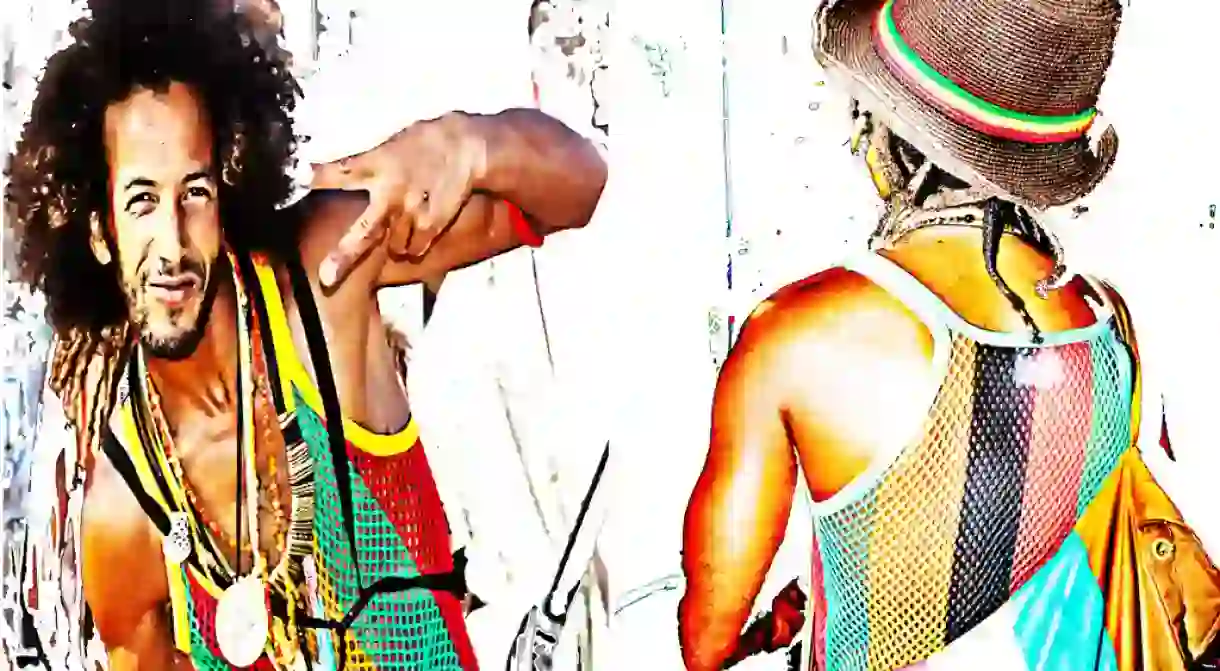11 Stereotypes Every Jamaican Hates

The small Caribbean island of Jamaica has a unique and distinctive culture that has become a powerful global brand. Instantly recognisable the world over through music, culture and athletics, the country has much to be proud of. Unfortunately the human tendency to simplify things has led to a number of stereotypes that every Jamaican hates.
Jamaicans are all rastas
It might not be a bad thing if there were more rastas in the world, but according to the 2001 census, there were only 24,020 adherents in a country of 2.7 million people. The prevalence of Rastafarian-related imagery was given a big boost by musicians such as Bob Marley and by the 1966 visit to Jamaica by Emperor Haile Selasie.

Jamaicans are aggressive
Jamaicans are some of the friendliest, most welcoming people anywhere. You only have to get lost, or get stuck in some unfamiliar place to experience smiling locals approaching with numerous offers of help. People aren’t afraid to express themselves and are not keen to back down from an argument, which perhaps give rise the the idea that they’re aggressive, but really, it’s absolutely not true.
Jamaicans all smoke ganja
Ok, it’s more common here than in many parts of the world, but it is actually illegal. Jamaicans certainly don’t smoke as much herb as people tend to think. It doesn’t help though that the stereotype is perpetuated on almost every t-shirt and tourist souvenir sold on the island.

Jamaicans are lazy
Knowing how to relax and enjoy life is a quality to be aspired to and not synonymous with laziness. People living hectic lives in developed countries might initially take a moment to adjust to the pace of life in the Caribbean – but it’s an adjustment worth making.
Jamaicans say ‘man’ after everything
No man, it’s not true. Not after everything, and certainly not ‘mon’. It’s common to hear ‘yes, man’ or ‘no, man’ by way of emphasis, but don’t fall into the trap of thinking it’s much more than that.
Jamaicans all listen to reggae
Reggae is the most well known genre of music to come out of Jamaica, and rightfully has a prominent place in the nation’s musical lexicon. But tune into a Jamaican radio station today and you’ll hear dancehall, you’ll hear pop music, as well as every type of music you’d hear anywhere else in the world. Besides don’t forget Jamaica also gave birth to ska, dub and rocksteady. It’s not all about Mr Marley.

Jamaicans speak only patois
Everyone can ask wha gwaan? But there are few things more entertaining than a non-patois speaking Jamaican (or anyone for that matter) trying to converse in patois. Patois is a type of creole and largely derivative of English, meaning if you listen carefully it’s usually possible to follow the gist of even the fastest patois. However, English is the island’s main language.
Jamaica is super dangerous
The crime rate is relatively high on the global rankings, but much of the violent crime is limited to inner-city areas and is often inter-gang related. In other words, there are places to avoid, but most of the island is safe and friendly. The capital Kingston is the beating heart of Jamaican music, culture and business and well worth a visit by anyone coming to Jamaica.
All Jamaicans run fast
The atmosphere in Jamaica was electric during the Olympics, and the Commonwealth Games; people are rightfully proud of their world beating athletes. Usain Bolt and Shelly-Ann Fraser-Pryce have achieved global fame through their track performances and are great ambassadors for the country. Jamaican schools have an astonishingly successful programme for developing young athletes which will see many more years of Jamaican dominance. However, the thing about world champions is that they are exceptional – not everyone in Jamaica is a track star.

Jamaica is one big beach, and everyone lives near it
Close your eyes and think of the Jamaica of the holiday brochures – white sandy beaches and crystal blue sea water kissed by the sun. There are some fantastic beaches in Jamaica, but it’s not known as ‘the land of wood and water’ for nothing. Much of the island, rising to a summit in the UNESCO world-heritage Blue Mountains, is green and hilly, and crisscrossed with rivers and waterfalls. Something like a third of the population live in the greater Kingston area; and more Jamaicans make their living from the land than from the sea.

Jamaicans are all hustlers
One man’s hustler is another man’s entrepreneur. People tend to be industrious, imaginative, and contrary to another unwelcome stereotype – hard working. The social system in Jamaica offers limited support, so people have to work for what they’ve got. The next time someone tries to sell you something on the street, acknowledge their industry and help them out.













